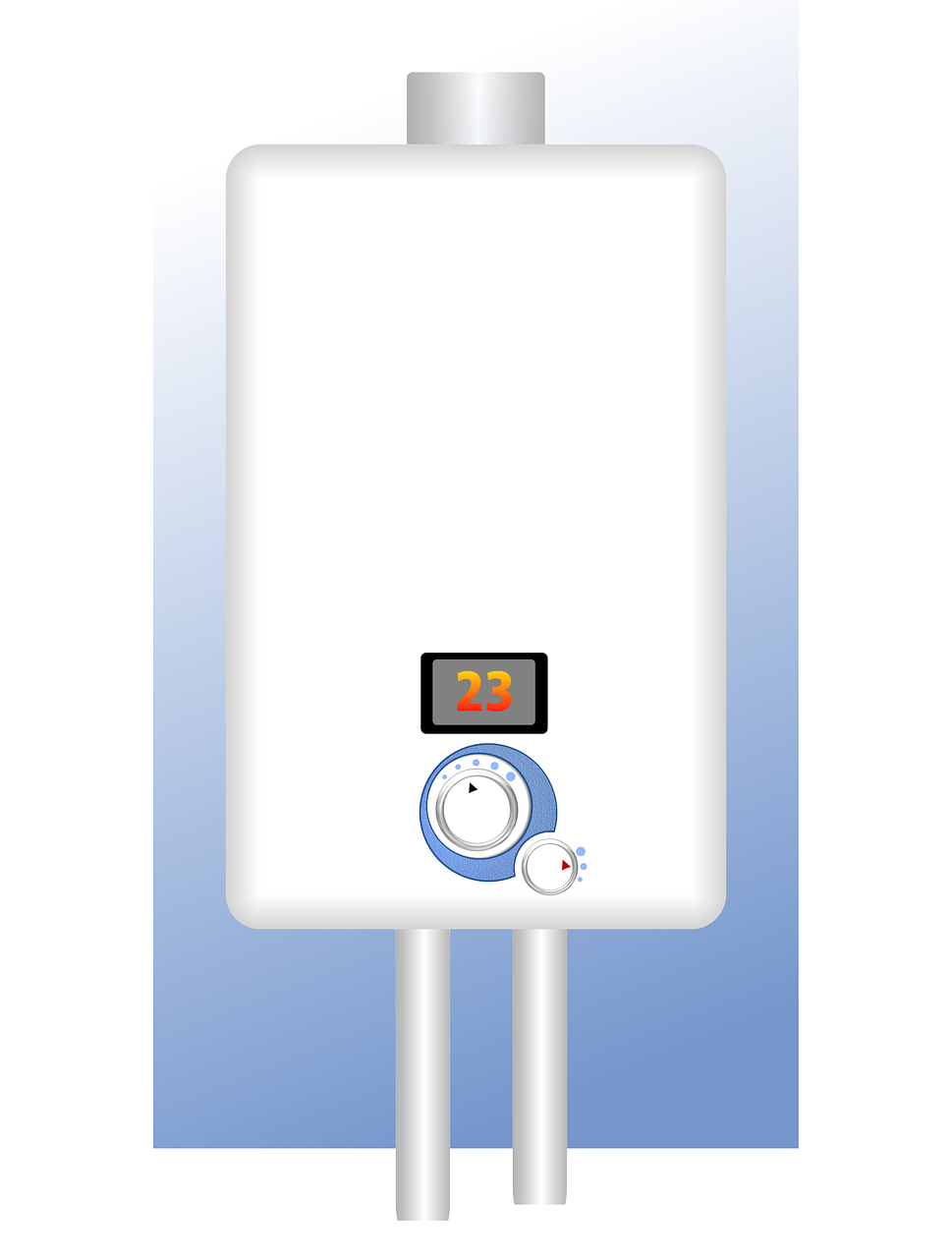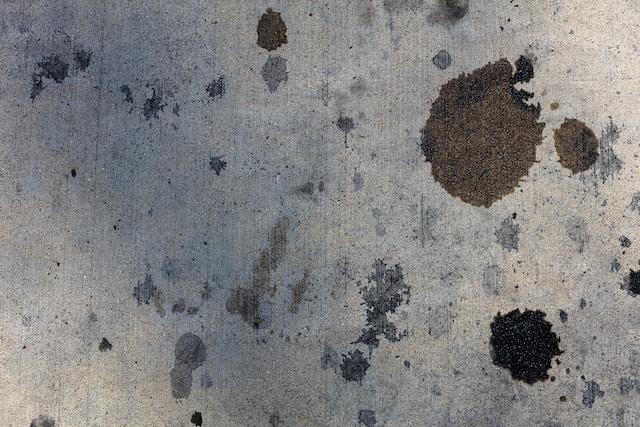Does My Homeowners Insurance Cover the Damage For a Water Heater Leaking?
Our product recommendations are made independently, but we may earn affiliate commissions if you use a link on this page.
Dealing with damage caused by a water heater leak can be an overwhelming and frustrating task. This is especially true knowing that you will need to call the homeowner’s insurance company to file a claim.
While having a homeowner’s insurance policy is necessary when you own your home, it can also be frustrating to understand what is covered and what is not. Even though many items are covered under most policies, there are often certain conditions that apply.
Are you wondering if the damage caused by your water heater leak will be covered by your homeowner’s insurance policy? Read on below to learn more.

Does My Homeowners Insurance Cover Damage from a Water Heater Leaking?
It can be somewhat daunting to wake up in the middle of the night or come home after a long day only to discover that your water heater has malfunctioned. If this is the case for you then you may also discover that the area around your water heater has been damaged.
Having homeowner’s insurance is often the saving grace when it comes to unexpected events happening within your home. The policy you pay for each month is designed to cover many of the unexpected events that may occur.
But, does your homeowner’s insurance policy cover the damage caused by a leak in your water heater? While some policies do, others have certain conditions and exceptions that may prevent you from being able to file a claim.
In most cases, as long as the water heater leak is due to unforeseen circumstances that are not brought on by a lack of regular maintenance, you should be covered. This is because most policies will only cover damage that is due to a sudden incident and not one that has been occurring over time.
Another factor to consider when finding out how much a homeowner’s policy will cover is important to note that they often only pay for the damage to your home. This means that the cost of the replacement water heater may come out of your pocket.
When purchasing your homeowner’s insurance policy, it is wise to ensure that you know what the general policy will cover. While saving money is important, especially after buying a new home, it is also important to make sure that you are not paying exorbitant amounts to replace such items as your water heater after it fails.
The bottom line is that if the damage caused by the water heater leaking is deemed to have been caused by either a natural disaster or other naturally occurring events, your policy should cover the damage. However, if it is deemed that the damage is caused by your negligence, you may find yourself paying for the damages yourself.
Causes of Water Heater Leaks
In most cases, many factors can cause a water heater to leak and cause damage to your home as a result. Many of these factors can be prevented with regular maintenance and inspection of your water heater.
Time
A water heater is only designed to last a specific amount of time, especially since it holds water within a metal casing. Over time, the water can cause the casing to break down and become corroded, which in turn can cause your water heater to leak.
Pressure or Temperature
Most water heater manufacturers have certain recommendations when it comes to temperature settings. When the temperature is changed to a higher setting or when the pressure is too high, your water heater can begin leaking, causing damage to the unit and surrounding area.
Buildup
Many water heaters are exposed to hard water, which can cause sediment to build up in the bottom of the unit over time. After some time, these deposits can cause the bottom of the water heater to become corroded, thus resulting in a water heater leak.
Lack of Regular Maintenance
What some homeowners do not realize is that regular maintenance of a water heater is a necessary task that can prevent future damage. Maintenance on a water heater should include an inspection of the unit to ensure the temperature and pressure are at recommended levels as well as flushing it to remove any sediment buildup.
Installation Malfunction
You should always ensure that your water heater is installed by a professional plumber who knows what they are doing. Some cases of leaking water heaters are due to the unit not being installed properly or even the wrong size being installed.

What Types of Water Damage are Covered by Homeowner’s Insurance?
When you purchase a home and a homeowner’s insurance policy, you should take the time to find out what will be covered in the event of a water heater leak. Doing so will protect you from having to pay for items out of pocket.
It is important to note that most homeowners’ policies only cover damage caused by a water heater leak if it is caused by a natural disaster or a sudden occurrence. This means that if your water heater bursts unexpectedly and is not due to any lack of maintenance, you will be covered.
In other cases, most policies will also cover instances of a water heater leaking if it was caused by a natural disaster such as an earthquake. Since the occurrence is out of your control, most policies will cover the damage caused by the disaster, but may not cover the replacement of the water heater.
Types of Water Damage Not Covered by Homeowner’s Insurance
There are some instances where your homeowner’s insurance policy will not cover damage due to a water heater leak. These types of causes are typically inspected by a claims adjuster when you file a claim.
Here are some of the most common types of causes of water damage that your homeowner’s insurance may not cover:
- Damage due to lack of regular maintenance
- Damage caused by faulty installation
- Damage caused by an older unit that should have been replaced
- Damage caused by other factors that could have been prevented
Overall, the claims adjuster will determine whether or not the leak could have been prevented and will decide whether or not the insurance company is liable for the damages.

Tips on Preventing a Water Heater Leak
In most cases, prevention is the key to keeping things around your home running as smoothly as possible. Finding ways to prevent a water heater leak can be the best way to avoid damage that may or may not be covered in your homeowner’s insurance policy.
Wondering how you can prevent a water heater leak? Keep reading for some of the best tips to do so.
Regular Inspection and Maintenance
Performing regular inspections and maintenance on your water heater can be the best way to prevent most disasters. While you may not be able to keep a water heater from bursting unexpectedly, there are things you can do to keep it working properly.
Regular inspection and maintenance of your water heater include checking out all of the components to ensure that they are working properly and are not corroded. Additionally, you will need to flush out the tank regularly to make sure that sediment is not building up which could cause future damage.
Keep the Temperature and Pressure in Check
In addition to regular maintenance of your water heater, you should also ensure that the temperature settings are at recommended levels. This will keep the water heater from running hotter than normal thus causing faster deterioration.
Regularly check the water pressure valve to make sure that it is working properly. This can keep the water heater functioning at normal levels and prevent the pressure from building up thus causing the unit to burst or leak over time.
Replace Old Water Heaters
Keep in mind that a water heater typically has a life expectancy of about ten years or so. It is important to keep track of how long you have had the water heater and replace it if it is more than ten years old.
Doing so will help keep you from having to worry about the water heater malfunctioning due to old age.
Properly Insulate Your Water Heater
If you live in a colder climate, or if your water heater is located in a basement where it tends to be colder, you may want to consider insulating your unit. This can be done easily with an insulation blanket that is designed to keep the temperature at normal levels.
Install a Water Softener
If you know that the water in your area is harder than normal, you may want to consider installing a water softener in your home. This will keep the water in the water heater soft and can prevent sediment buildup that can damage the unit over time.
Since a water softener is designed to keep the water soft, you will not have to worry about flushing your unit as often. This is because there is often less sediment in the water that can cause the unit to corrode and leak.
Reference Legal Explanations
If you use any of the definitions, information, or data presented on Legal Explanations, please copy the link or reference below to properly credit us as the reference source. Thank you!
-
<a href="https://legal-explanations.com/blog/does-my-homeowners-insurance-cover-the-damage-for-a-water-heater-leaking/">Does My Homeowners Insurance Cover the Damage For a Water Heater Leaking?</a>
-
"Does My Homeowners Insurance Cover the Damage For a Water Heater Leaking?". Legal Explanations. Accessed on July 26, 2024. https://legal-explanations.com/blog/does-my-homeowners-insurance-cover-the-damage-for-a-water-heater-leaking/.
-
"Does My Homeowners Insurance Cover the Damage For a Water Heater Leaking?". Legal Explanations, https://legal-explanations.com/blog/does-my-homeowners-insurance-cover-the-damage-for-a-water-heater-leaking/. Accessed 26 July, 2024
-
Does My Homeowners Insurance Cover the Damage For a Water Heater Leaking?. Legal Explanations. Retrieved from https://legal-explanations.com/blog/does-my-homeowners-insurance-cover-the-damage-for-a-water-heater-leaking/.